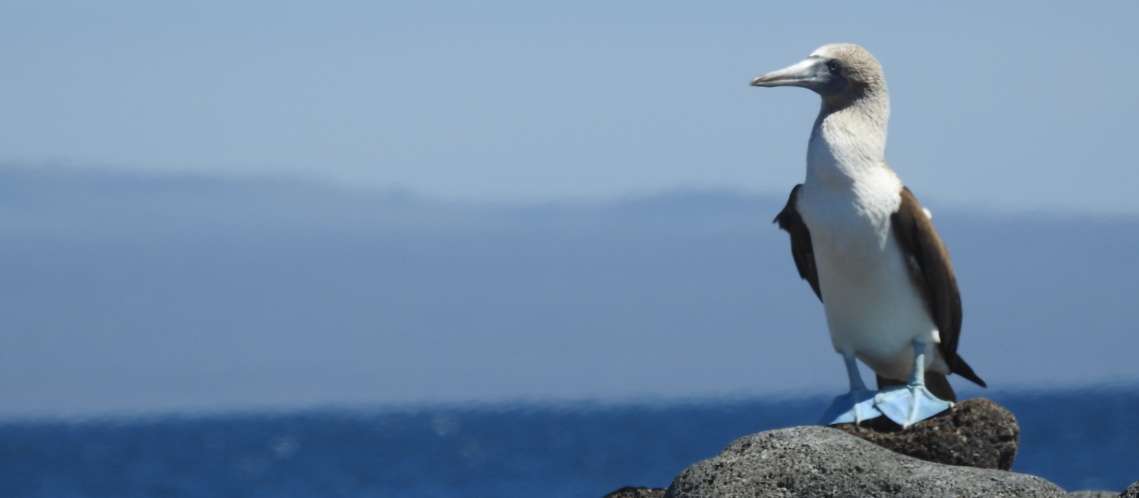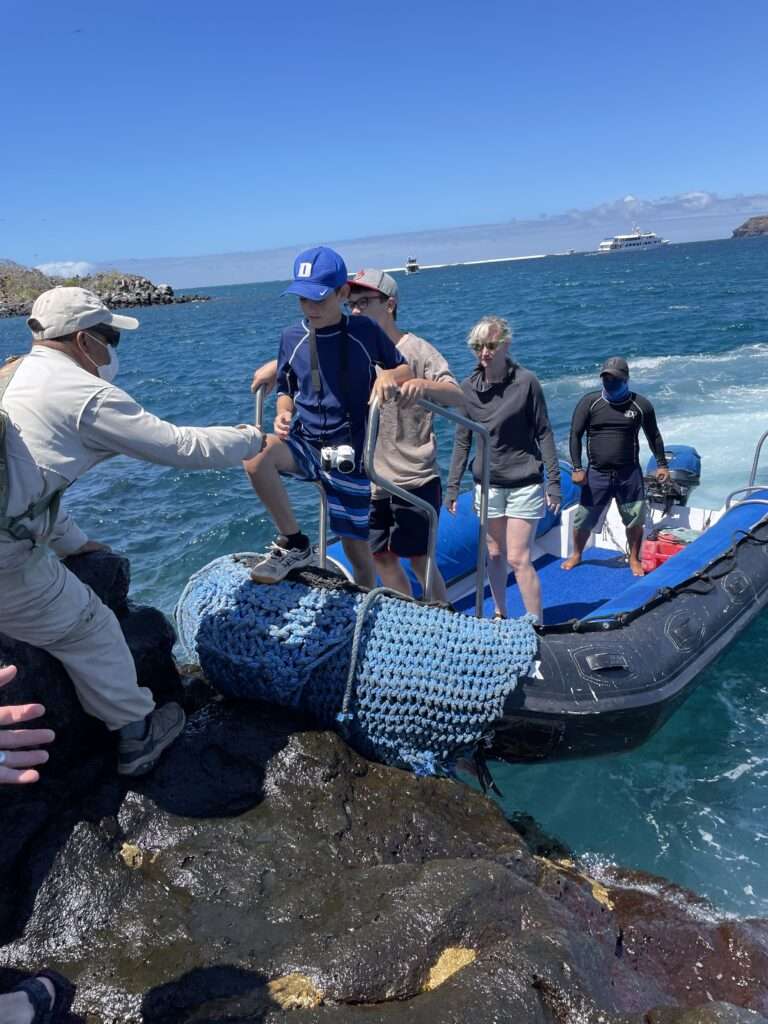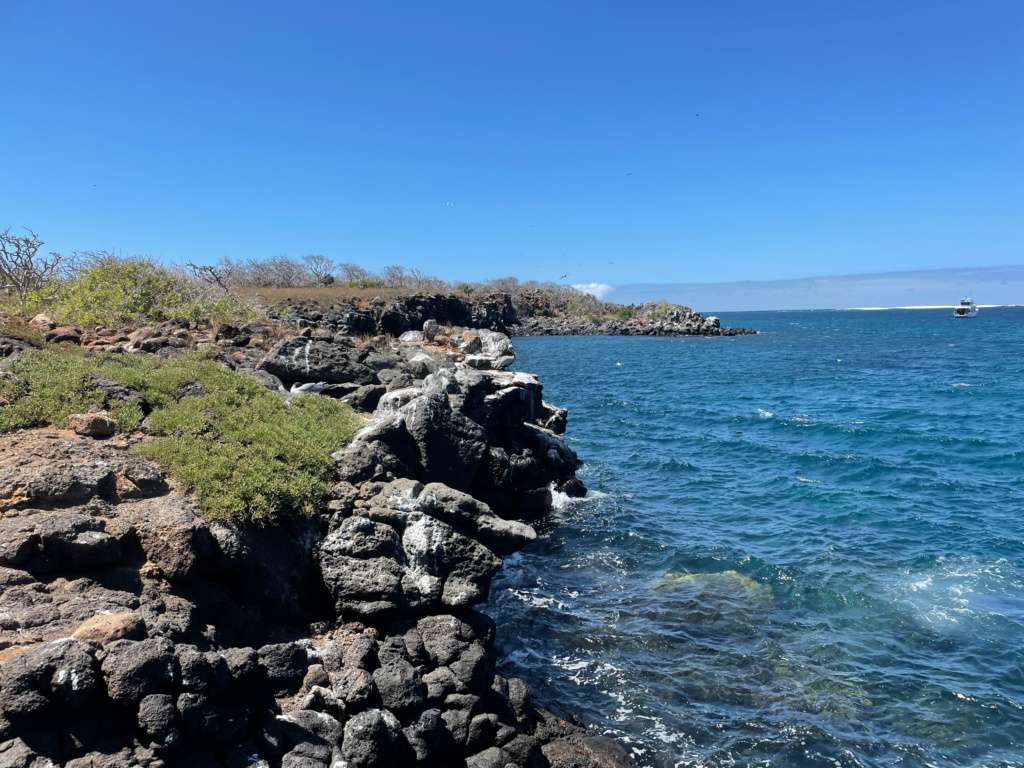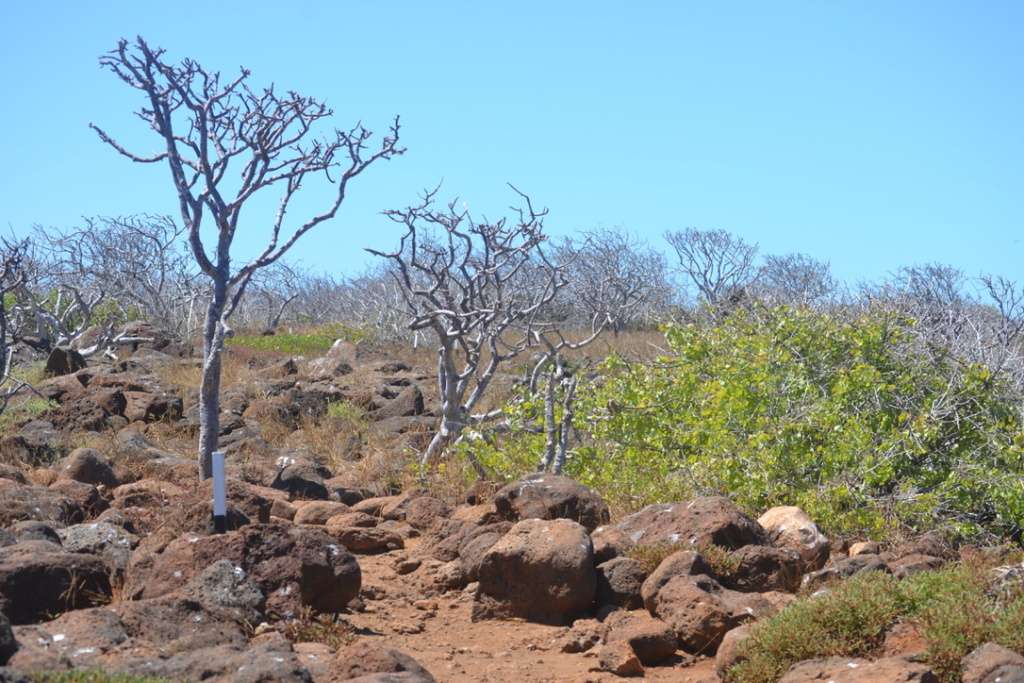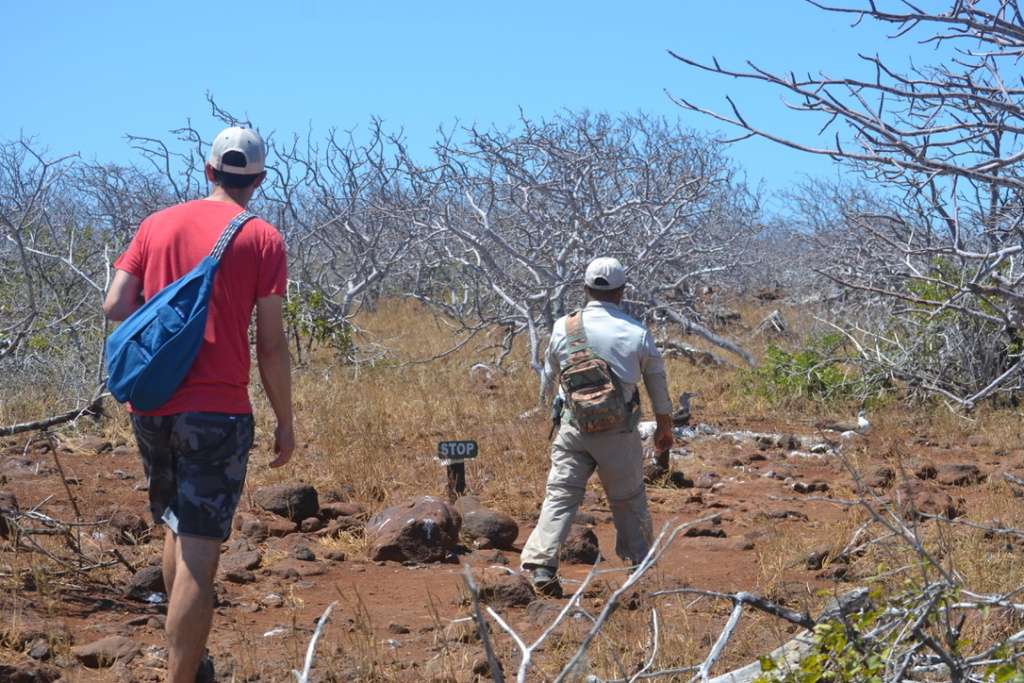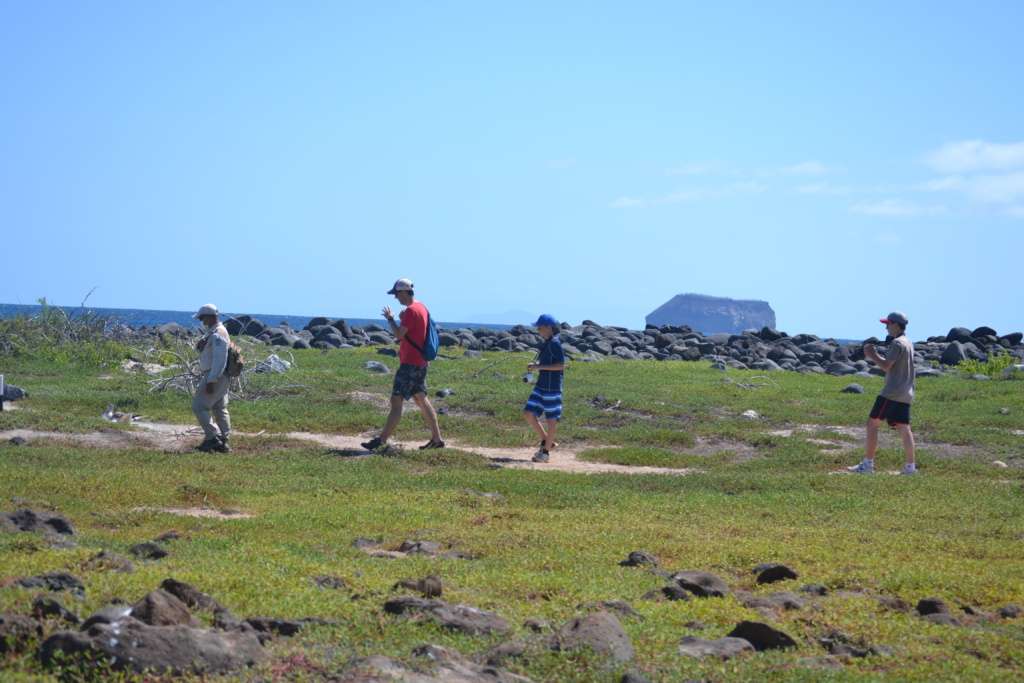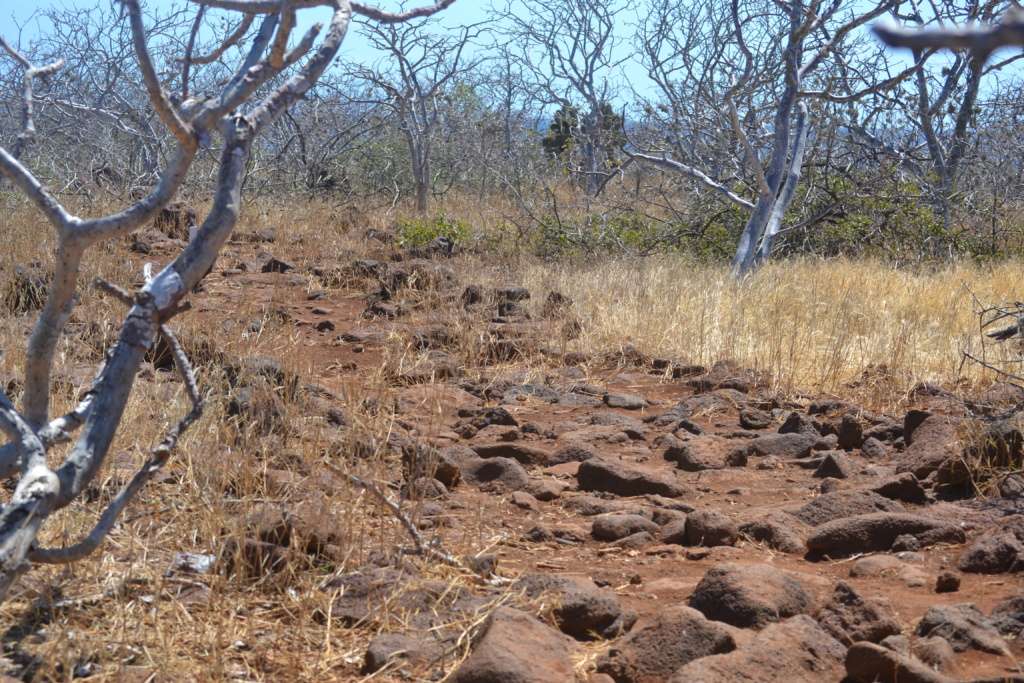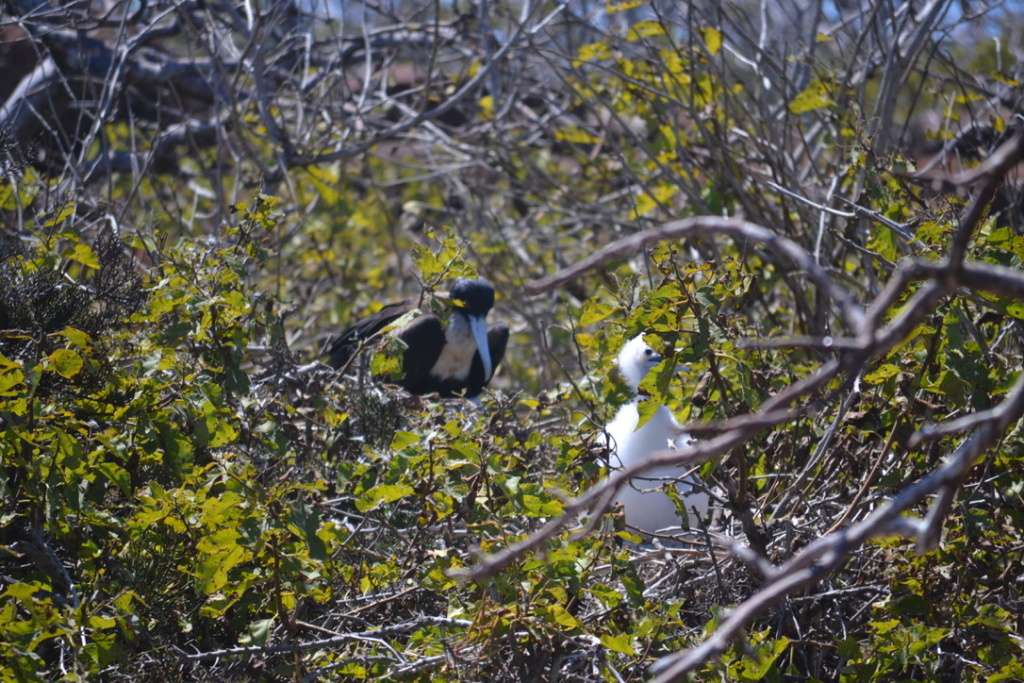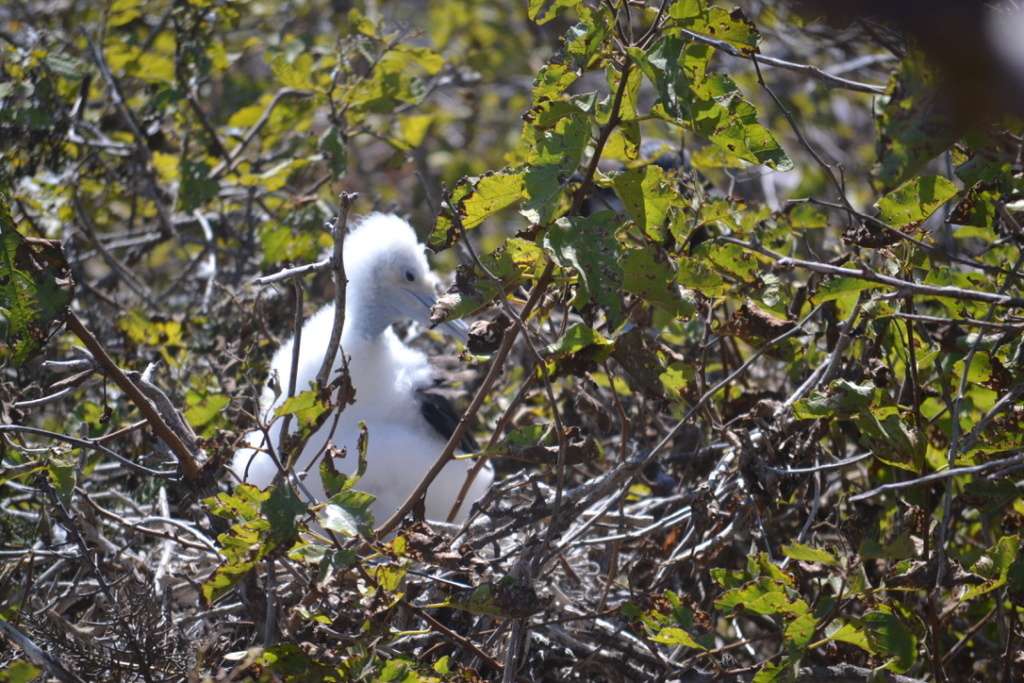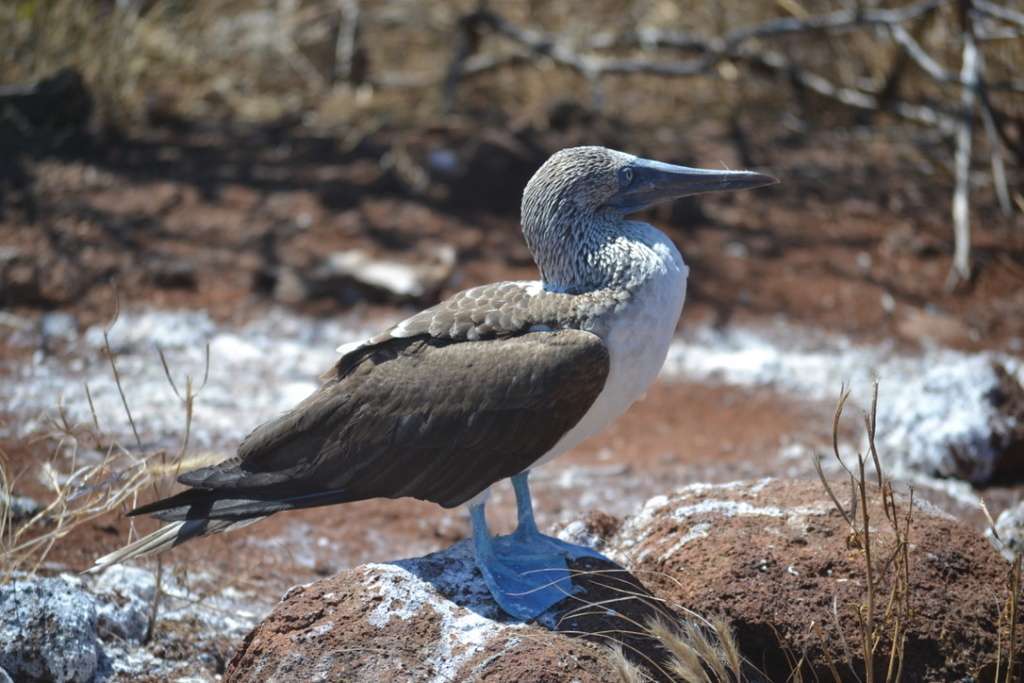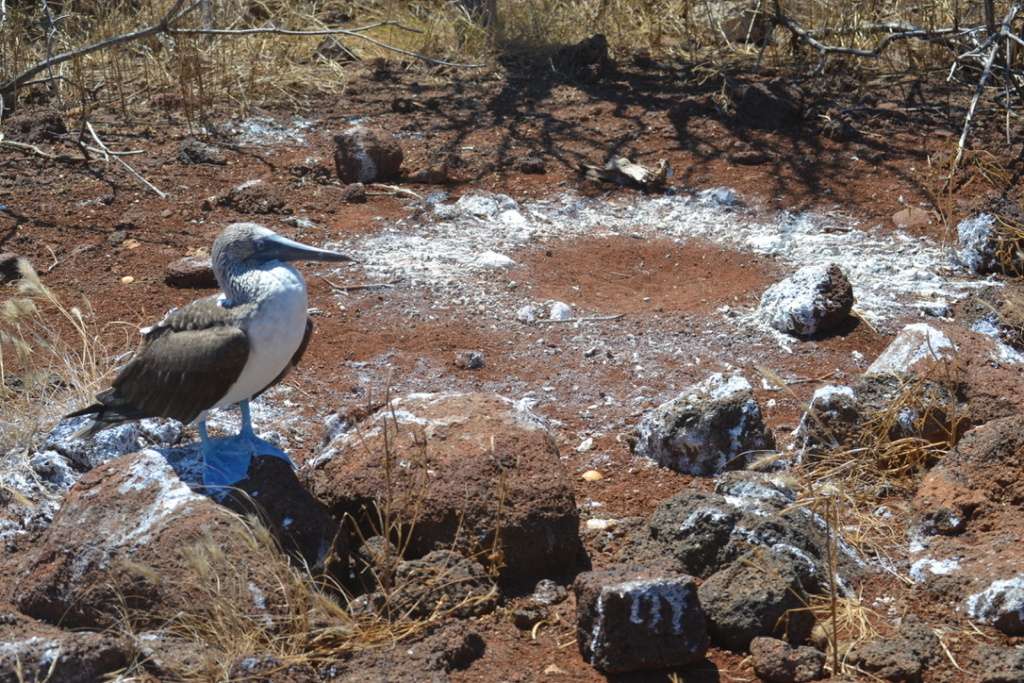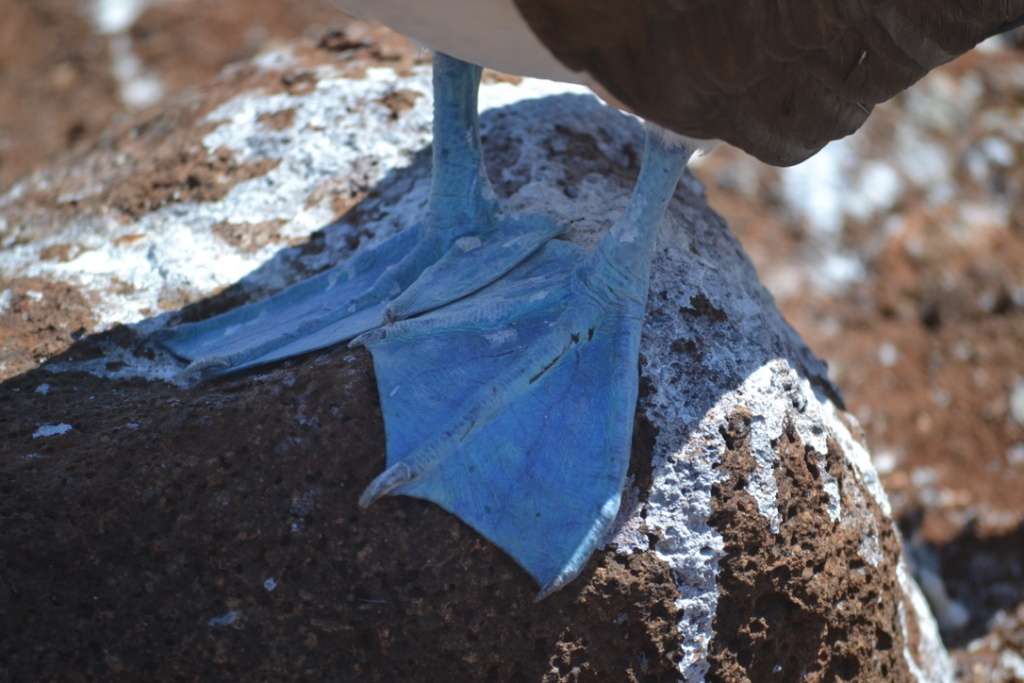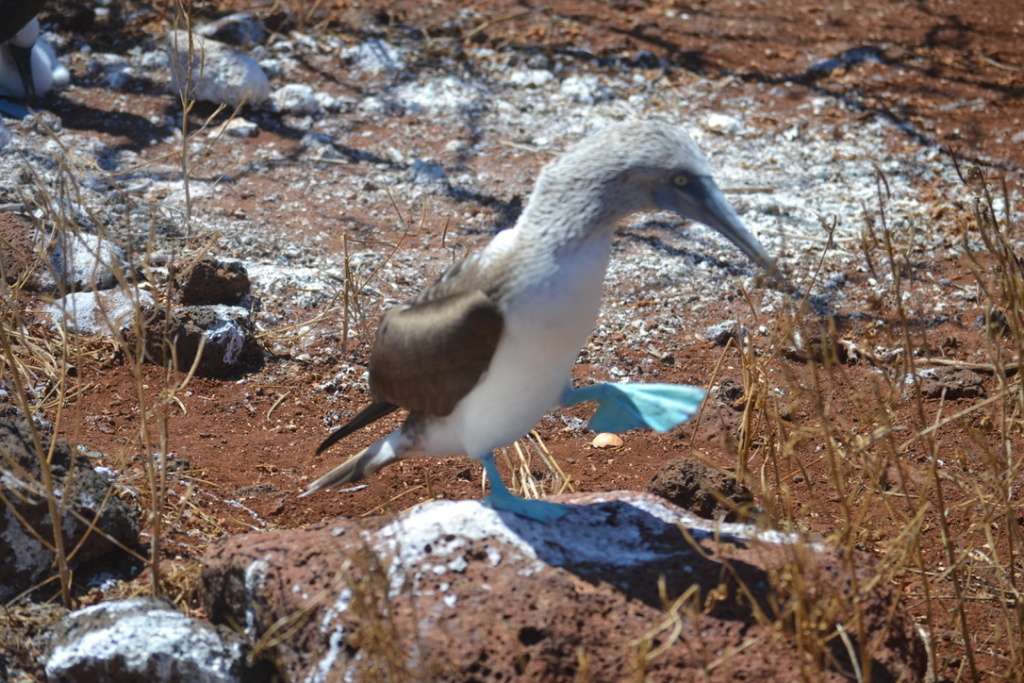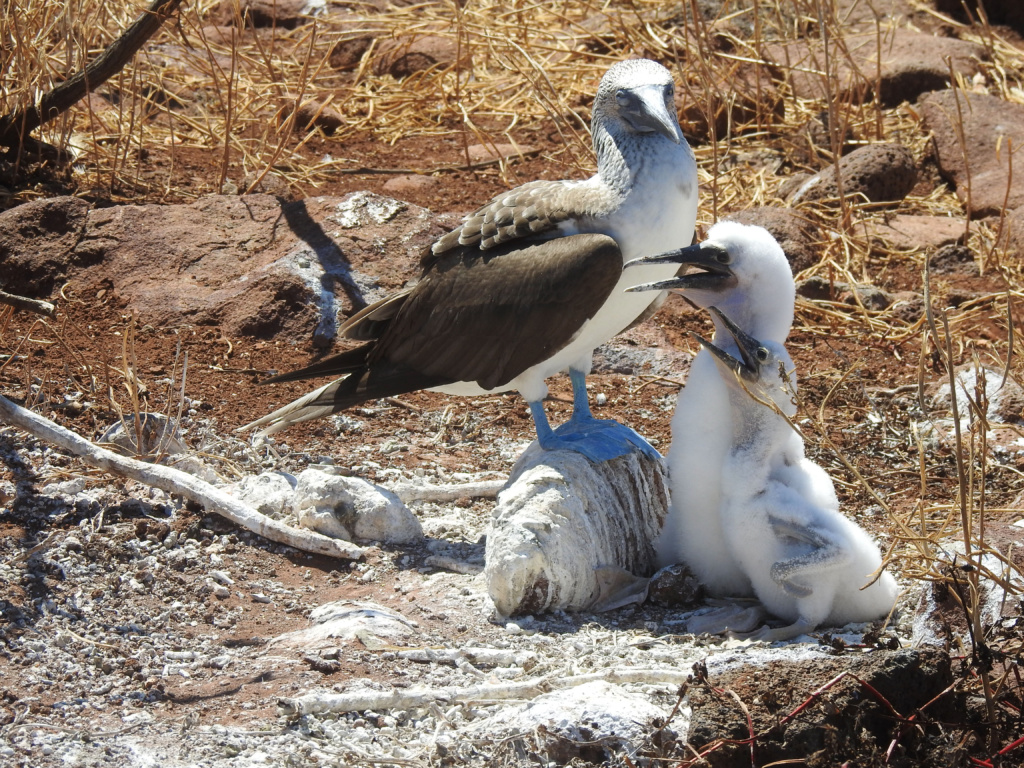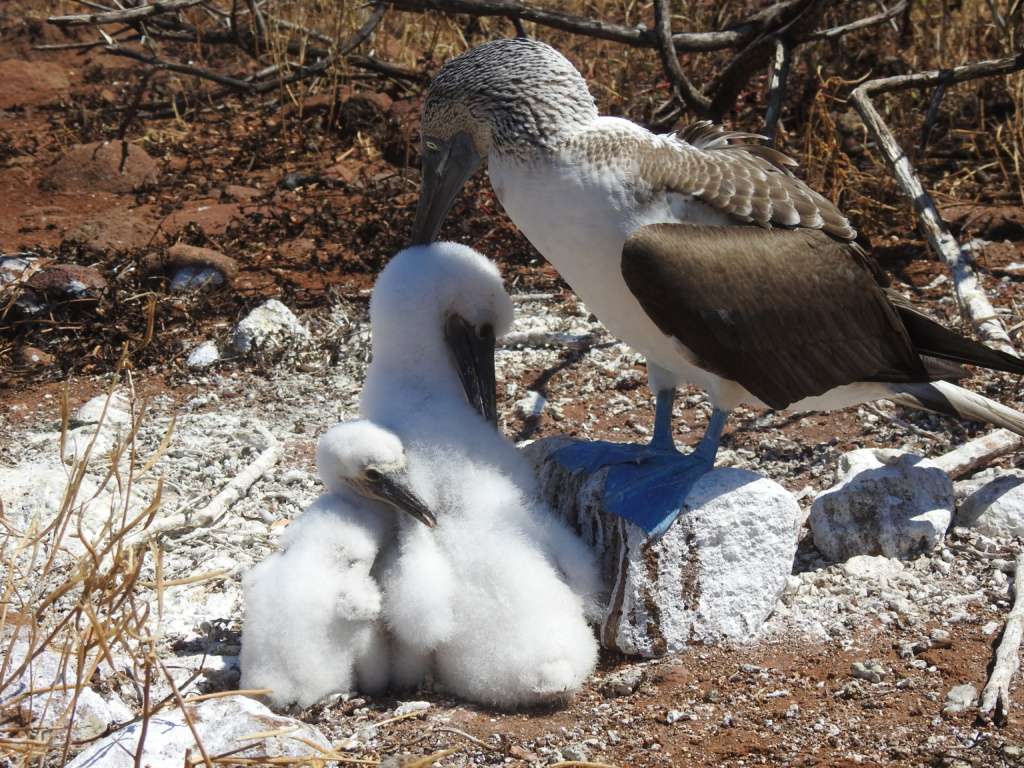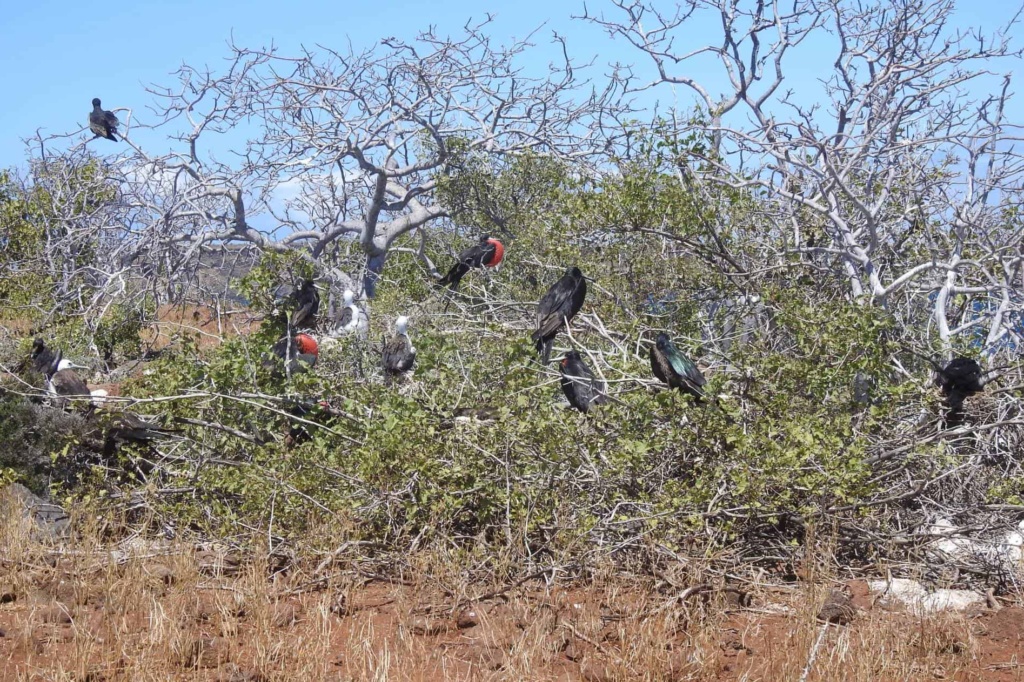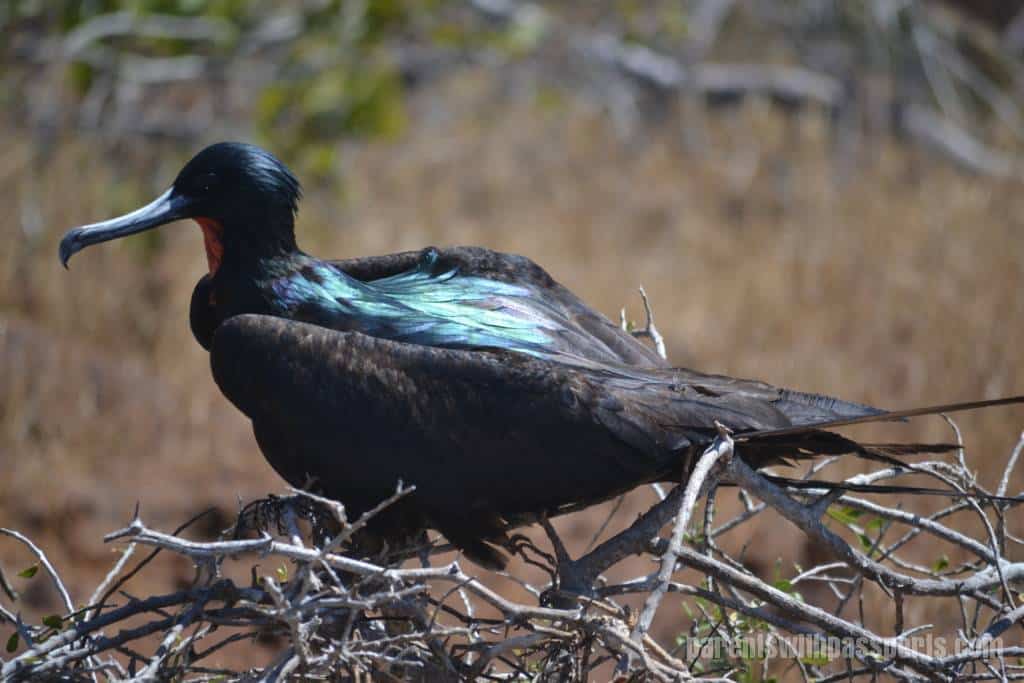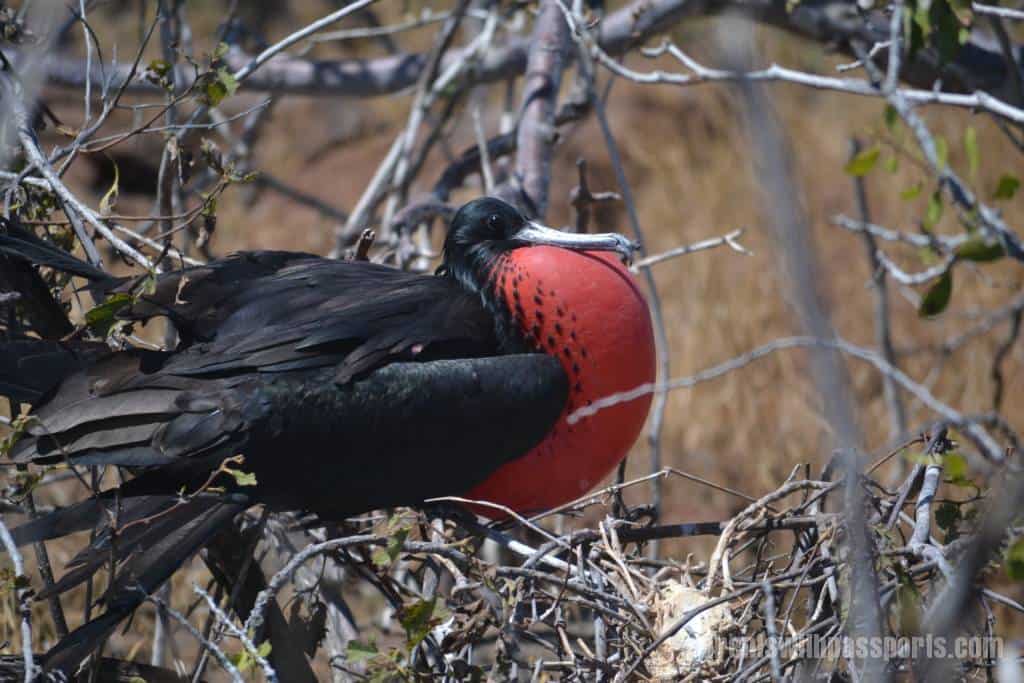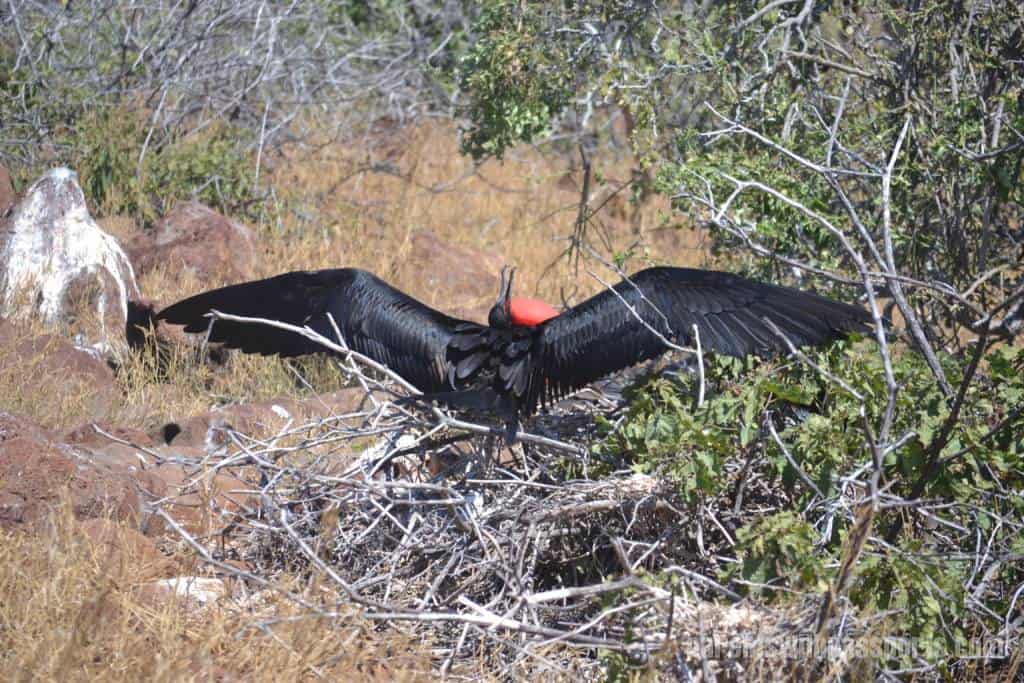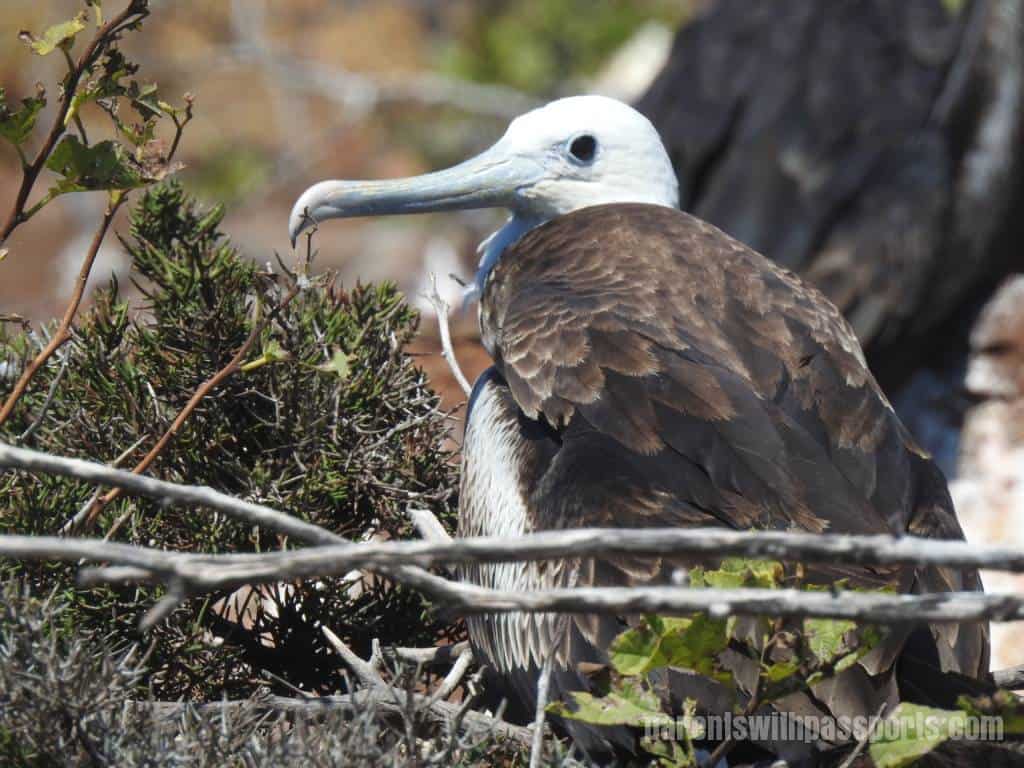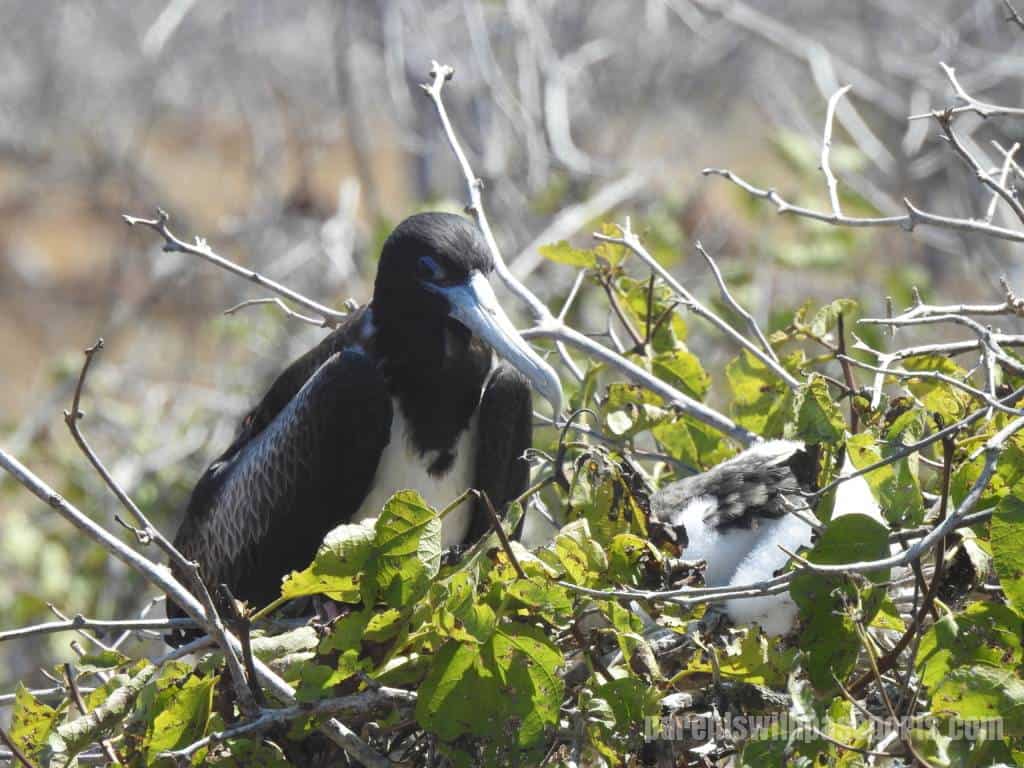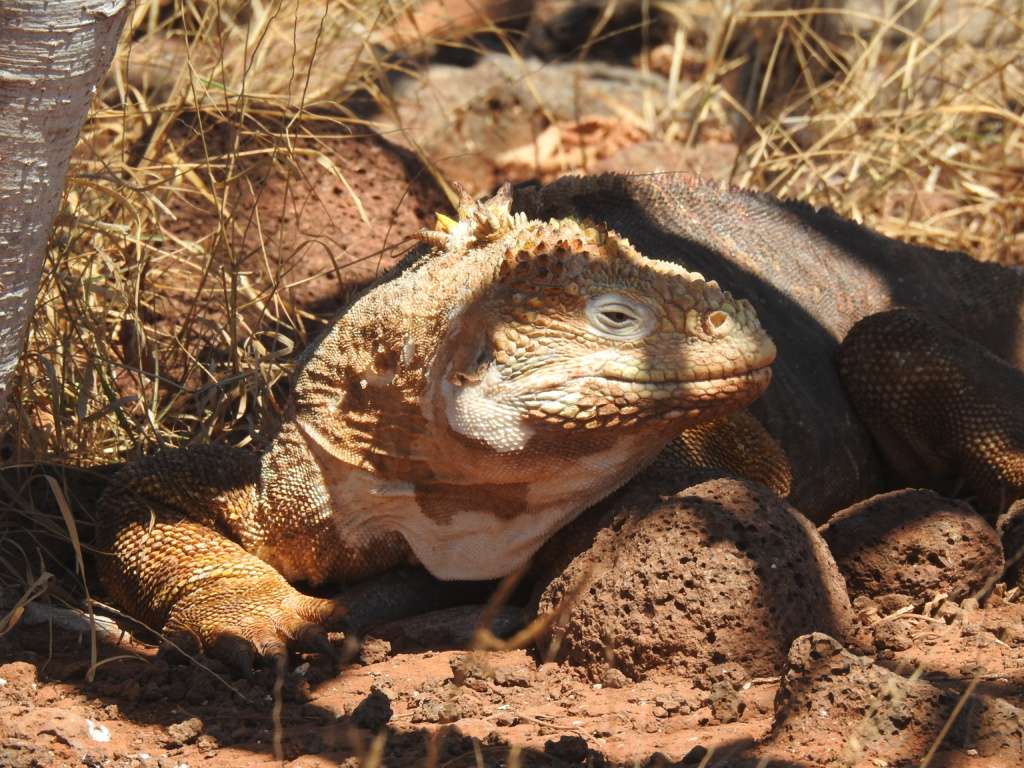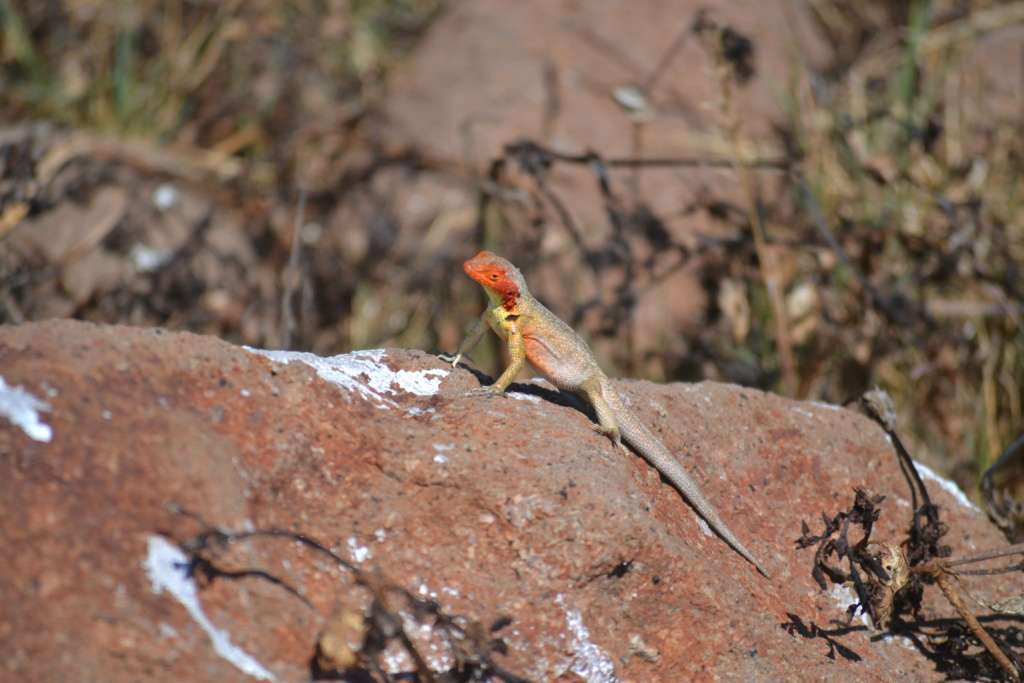The tour’s first stop at Mosquera Islet was such an unexpected surprise. I couldn’t believe what an incredible day it had been and we hadn’t even been to the main attraction yet. After lunch, we boarded the zodiac boat to go the short distance to North Seymour. With no beach to pull up to like on Mosquera, the zodiac pulled up to a rocky section of the island and the guide helped us all off the boat.
The difference in landscape from Mosquera to North Seymour was striking. White sand beaches were replaced by red sand and rocks. Bare trees and twiggy bushes dominated the landscape. It was hard to believe that we were so close to Mosquera. It felt like we were a world away.
Unlike Mosquera where we were free to roam around, on North Seymour we had to follow the guide and stay on a marked path. The trail was a roughly 1 mile loop around the island.
Our guide immediately spotted a female magnificent frigatebird and her chick hiding in a bush. The mama bird was just finishing up feeding her baby. For the first three months of their life, chicks eat regurgitated food from their parents’ beaks. Frigatebirds can’t swim or even land on water to fish so they swoop in from above and grab fish close to the surface or catch flying fish midflight. They are also known as “the pirates of the sea” because they will steal fish from other birds, sometimes even forcing them to regurgitate their recent catch.
Everyone was so fascinated by this one partially obscured bird and her baby that nobody made a move to continue down the path. Finally our guide laughed and said we would probably see a hundred more before we finished our walk and it was time to move on. We immediately came upon a blue-footed booby in its nest. Blue-footed Boobies don’t build a nest per se but just lay their eggs on the ground. They then defecate in a circular pattern around their eggs to create a wall of guano to mark their territory and protect their eggs.
Blue-footed Boobies rely on their blue feet for mating. Their feet turn blue from carotenoids from the fish they eat. The bluer their feet, the healthier – and therefore more attractive – they are as a mate. This is why they show off their feet to potential mates in their mating dance. And females are wise to choose mates with the bluest feet – studies have shown that the healthiest chicks have fathers with the brightest feet.
Blue-footed Boobies lay up to three eggs a season, although they are usually laid 4-5 days apart. This means that the chicks also hatch 4-5 days apart. Due to the speed with which they grow at the beginning of their life, this 4-5 day difference is significant. We spotted a bird with its two chicks and it was hard to believe they were from the same brood.
Continuing down the path, we came upon a colony of magnificent frigatebirds hanging out in the branches of trees and shrubs. We got to see several males perform their mating ritual. In order to impress females during mating season, males inflate their bright red throat pouch to an enormous size and then beat their bills against their pouch to make clicking and drumming noises. At the same time, they flap their wings and throw their heads back. It is quite an impressive display!
Aside from all of the wonderful bird encounters on the island, we saw a few reptiles as well. Although they live on both Isabela and Santa Cruz as well, this is the only place that we saw the Galapagos Land Iguanas on our trip. One of three species of land iguanas endemic to the Galapagos, these yellow and brown lizards blended in easily with the rocks and dry underbrush of the island.
And we also spotted a cool lava lizard with a bright orange face.
The tour of North Seymour was exactly what I pictured when I imagined visiting an uninhabited island in the Galapagos. It was such a unique and memorable experience to walk on an island of rugged, untouched landscape teeming with wildlife. From witnessing the Magnificent Frigatebird’s mating call to observing numerous Blue-footed Boobie chicks in their nests, this was a once-in-a-lifetime experience that our family will never forget.
